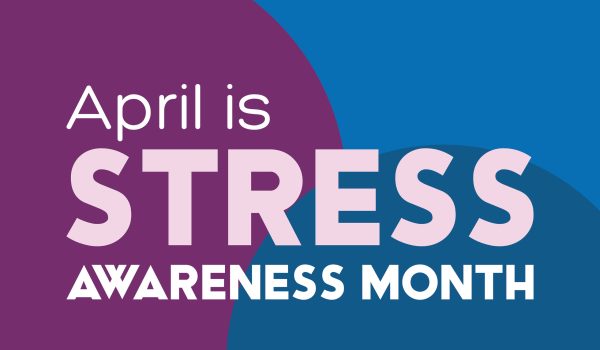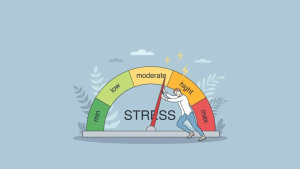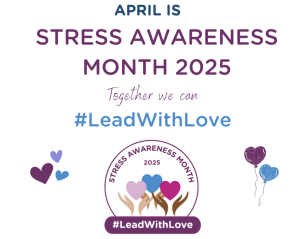Effective Stress Management
Tips for Reducing Stress this April
Stress encompasses any physiological and psychological response to mental or emotional strain or tension resulting from adverse or demanding circumstances. Stress is a universal condition, a constant state of mind experienced not only by humans but also by other animals. Stress is ingrained in all individuals, however, most people do not actively recognize the source of stress through mindfulness, while finding methods (e.g. meditation) to minimize or cope with it.
–
Since 1992, April has been observed as Stress Awareness Month to raise public awareness about the primary causes and stress-reduction measures. This month, advocates raising awareness around stress prioritize:
- Education about the causes and effects of stress.
- Promoting effective stress management techniques to aid mental health.
- Encouraging open dialogue to reduce the stigma surrounding stress and mental health issues.
- Providing resources and support to help individuals manage stress effectively.
Recognizing and Reducing Stress
Exercises in mindfulness help individuals remain cognizant of ongoing stressors. Walking in nature, engaging in self-reflection and meditation, and socializing with others are key ways to simultaneously recognize and combat stress.
–
Practicing Self-care
Engaging in daily habits such as 30 minutes of exercise, or just 10 minutes of meditation can improve well-being significantly. A 2019 study found that an hour spent in nature can decrease cortisol (stress hormone) levels by up to 20%.
–––
Prioritizing Sleep Hygiene
Getting sufficient sleep aids in managing stress through cortisol regulation. Achieving 7-9 hours of sleep has been proven to significantly reduce stress and improve mental clarity. Establishing a consistent sleep schedule is equally important, as doing so regulates the circadian rhythm, signaling the body’s time to wind down.
–
Partaking in Social Activities
Social support and healthy activities reduce stress significantly. It is important to asses social activities that can exacerbate stress, such as large crowds (if easily triggered by social anxiety), or events involving drinking that worsen symptoms and trigger depressive episodes. Healthier social activities include making time to connect with friends and family, or joining a support group or group therapy session.
–
Limiting Screen Time
Spending excessive amounts of time on social media and devices can spike stress levels, especially if the content being consumed is inherently stress-inducing. Observing and limiting screen time, while spending more time engaging in offline activities, can divert the mind away from an information overload.
–
Advocating for Stress Awareness Month
Stress Awareness Month is a globally recognized annual event aimed at educating the public on stress’s causes, effects, and effective management techniques. 2025’s theme #LeadWithLove encourages participants to approach stress with compassion rather than stigma, advocating for mental well-being. Learn more about the many ways to advocate for stress awareness – not just in April – but throughout the year.




